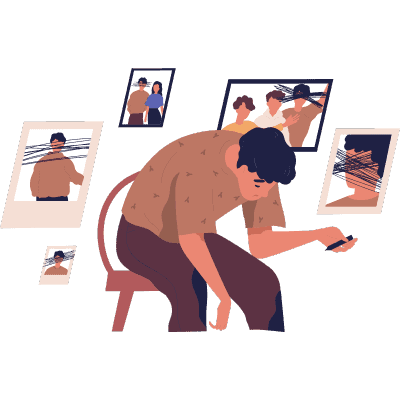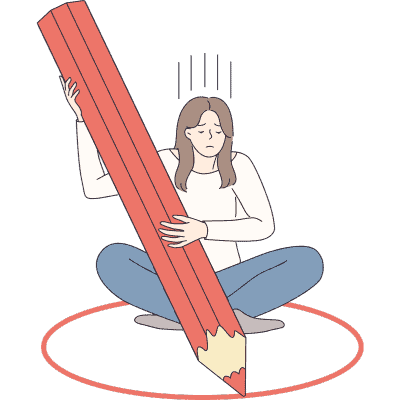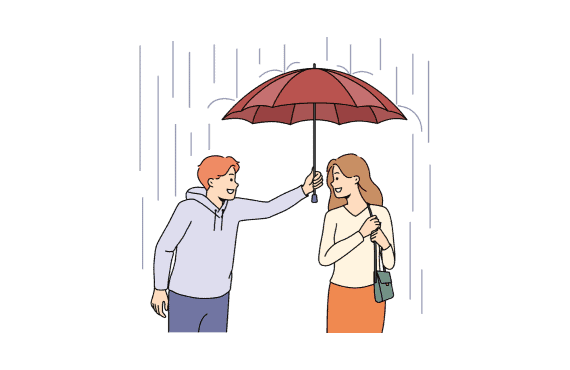Adolescence is a chaotic mix of self-discovery, emotional rollercoasters (with a few loop-de-loops), and a shifting social circle of old friends and new ones.
There are arguments between BFFs, reconciliations, and, yes, romantic breakups and makeups. The teen years are when you first get crushes, fall in love (or what you swear you think is love), and experience unrequited romantic feelings and rejections (ugh).
There are tons of “firsts,” and accompanying them is a shady sidekick—peer pressure. The quiet pull of sometimes overpowering peer influences can lead teens down the regrettable road of making some questionable choices they might later regret, especially when it comes to love and friendships. We’ve all experienced it to some extent—no one is immune, and teens, in their formative years, are the most susceptible to giving in to peer pressure. Can they keep some semblance of independence and resist it without being ostracized for being “uncool?” Is there a reasonable balance to be found? Let’s find out!
Understanding Peer Pressure’s Subtle Power
Peer pressure isn’t always obvious—it doesn’t necessarily come in the form of a friend daring you to do something reckless while saying, “Come on, everybody does it!” or “It’ll make you feel good!” More often, it’s a subtly implied vibe, a slick nudge urging you to join in on certain societal norms or ideals. When it comes to teen dating, this might manifest as:

- Entering a relationship to ‘fit in’.
- Hiding a relationship that might be deemed by friends as below your social station.
- Dating someone in a ‘popular’ clique to up one’s social status.
- Suppressing your true feelings or opinions to go along with the group so you don’t make waves.
Recognizing and understanding these crafty cues is the first step to resisting them.
The Domino Effect: How Peer Pressure Influences Dating Choices
Let’s say so, and so has a crush on so and so, who is an introverted bookworm—aka a nerd. But her friends think another so and so, who happens to be the school’s hot star soccer player, is a better match. Influenced by their opinion, she starts dating the soccer stud, abandoning her crush on the nerd.
This situation isn’t uncommon at all! The desire to be accepted can get the better of true feelings. Over time, these kinds of decisions may lead to unhappiness or resentment. What’s the lesson in this scenario? Being true to your romantic choices equals a happier existence, full stop.
Keeping the Balance: Romance and Friendship
So, can one maintain friendships while being true to their romantic feelings? Absolutely! Here’s how:

Communicate:
Transparency is crucial. If friends express concerns about your partner, listen. They might see red flags you’re missing. Conversely, if friends are pushing you toward someone you’re not interested in, be honest about your feelings.

Set Boundaries:
While spending time with a romantic partner is intoxicating, don’t abandon your friends. Dedicate time for both, so no one feels neglected.

Remember Your Worth:
Relationships, both platonic and romantic, should uplift you. If you feel pressured to be someone you’re not, it’s time to re-evaluate that relationship.
The Tricky Tangle: When Friends Become More
Adolescence is also a time when lines can blur. What if you develop feelings for a friend? This situation is delicate, as the fear of ruining the friendship looms large.
Here, introspection is key–evaluate the depth of your feelings. It might be worth letting it pass if it’s a fleeting crush. However, if your romantic feelings don’t magically disappear overnight, think about discussing them with your friend. While terrifying in this situation, honesty can lead to stronger ties in the end.
Above all, the most profound relationship you’ll ever have is with yourself, so practice self-love. When you respect and understand your worth, you’re less likely to give in to peer pressure—you’ll make choices that are right for you, knowing that you aren’t sacrificing your ideals for the sake of others’ acceptance.

The Cultural Influence
Cultural and societal norms play a big role in shaping our perceptions about relationships. In many societies, an implicit “timeline” or an “age-appropriate stage” for relationships can ramp up peer pressure. For instance, if everyone’s dating by a certain age and you’re not, it can feel like you’re on a lonely island.

Tips to Navigate:
- Stay A-Woke: Understand that these norms change, and what’s cool today might be passé by next week.
- Look to Role Models: Ask older (and wiser) friends and family who’ve been where you are and ignored societal expectations—they can offer reassurance and give invaluable advice.
Digital Dynamics
Today’s teens are the first generation, and looking for love on dating apps is the rule, not the exception. Love and friendship in the age of social media, where all of your friends and acquaintances are extremely online notches up peer pressure. Adding the people you hang out with being online to a barrage of posts from people you follow on IG or TikTok constantly posting about “perfect relationships” tends to get overwhelming.

Tips to Navigate:
- Limit Exposure: While avoiding social media is hard, setting boundaries helps. Dedicate specific times to check apps and mute or unfollow accounts that make you feel insecure about yourself.
- Reality Check: Remember that social media platforms are basically highlight reels, not the full story. Comparing your behind-the-scenes to someone’s best moments is a perfect storm for unhappiness, which can lead to depression.
Trusting Your Gut
Your intuition is your BFF. Sometimes, amidst the racket of peer opinions, it might whisper something different, and you should tune out the rest and listen. If something feels off, even if everyone else approves, trust your gut.

Tips to Navigate:
- Meditation & Reflection: Regular introspection helps in tuning in to your inner voice.
- Seek Guidance: While peers are important, having a trusted adult, a guidance counselor, or a therapist to talk things through with will offer a more balanced perspective. And it’s always good to have a sounding board there to listen.
Rejections and Failures: An Integral Part
Sometimes, whether it’s influenced by peer pressure or organic, relationships will not work out. Breakups, betrayals, or unrequited feelings are rites of teenage passage. Instead of looking at them as failures, try to see them as learning experiences—tough ones but necessary lessons.

Tips to Navigate:
- Grieve and Move On: Let yourself feel the pain of heartache and then work on getting past it.
- Seek Support: Friends, family, or therapy can be invaluable during these tough times.
Takeaways
The teen years, with their mix of love, friendships, and peer influences, are complicated as heck, and we wouldn’t want to go back to those days, no way, no how. But if you stay on your toes, know what’s what, have a good support system, and, this is the most important part, trust yourself, you can find your way out of the teenage funhouse with a sense of confidence. You’ll also emerge with people who like and love you for you—the real you, not the version you think your peers want you to be.
Just know that getting through these turbulent years will prep you for life beyond being a teen—and that you will be better for it and ready to better handle the ups and downs of life!
